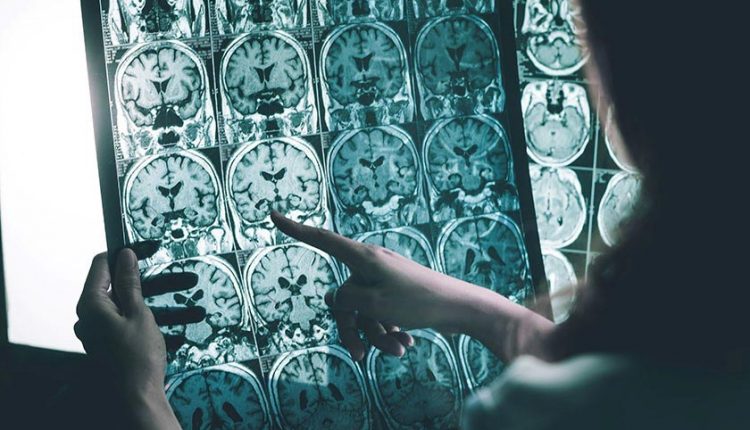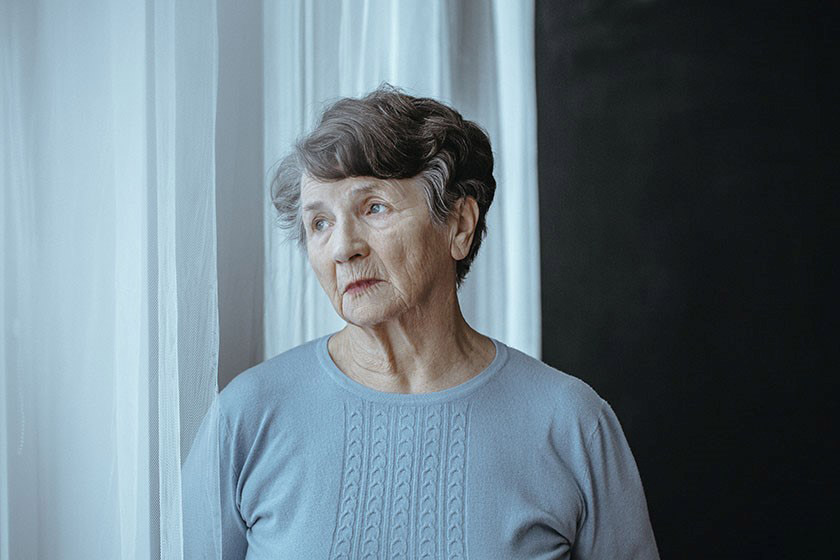
Dementia refers to a group of symptoms associated with a loss of memory, language skills, problem-solving abilities, and other cognitive functions severe enough to interfere with daily living. Alzheimer’s is the most common cause of dementia. Damage to brain cells causes dementia. This harm disrupts brain cells’ ability to communicate with each other. This disrupted communication may affect thinking, behaviour and feelings. Unlike Alzheimer’s disease, dementia is not an individual disease. Still, it is instead a general term that covers memory loss, confusion and decision-making difficulties that can interfere with daily life. Though dementia most commonly affects older adults, it is not a part of normal ageing.
Contents
Difference Between Dementia and Alzheimer’s
Dementia is not a single disease but a general term, like heart disease, covering a range of specific medical conditions. The term dementia describes a range of specific medical conditions, including Alzheimer’s disease. In general, dementia describes disorders in which abnormal brain changes occur. These changes cause a decline in thinking skills that can impair independent function and daily life. Dementia also affects behaviour, feelings, and relationships. What is dementia disease? You can refer to our previous articles to find the answer to this question.
With complex brain changes following cell damage, Alzheimer’s leads to dementia symptoms that steadily worsen. The main early sign of Alzheimer’s is difficulty learning new information because the disease typically affects the brain region associated with learning first.
Dementia Symptoms

Symptoms of dementia often appear slowly and then worsen with time because many conditions are progressive. There are several signs and symptoms of dementia, including early symptoms and warning symptoms.
Early Symptoms of Dementia
The early symptoms of dementia can vary, but common ones include:
- Problems with memory, particularly recalling recent events
- Confusion increases
- Decreased concentration
- Behavioural or personality changes
- Depression or apathy
- Having difficulty performing daily tasks.
If you or someone you know is experiencing memory problems, consult a doctor soon. Professional evaluation may uncover a treatable condition. And even if dementia is suspected, early diagnosis may allow a person to benefit most from available treatments.
Ten Warning Signs of Dementia
Consult a doctor if several of these symptoms are evident:
- Memory loss and dementia: People with dementia may forget appointments more often or not remember them at all.
- Difficulty with tasks: The steps involved in preparing a meal may become too difficult for someone with dementia because they might become distracted. At the same time, people living with dementia might forget parts of the meal.
- Dementia and disorientation: People with dementia can have difficulty finding their way to places they are familiar with or may think they are in the past.
- Language problems: It’s not uncommon for people with dementia to have trouble finding the right word. They may also substitute inappropriate words, making sentences hard to understand.
- Abstract thinking: Financial management is challenging for anyone, but people with dementia may have difficulty understanding numbers or knowing what to do with them.
- Poor judgment: Dementia can affect the ability to make appropriate decisions, which means the individual may not decide what to wear in cold weather.
- Poor spatial skills: If someone has dementia, they can have difficulty judging distances or directions in a car.
- Dementia and misplacing things: anyone can misplace a wallet or keys momentarily. Someone with dementia may not know what the keys are for.
- Mood, behaviour and personality change: Those with dementia may exhibit mood swings for no apparent reason. They can become confused, suspicious, withdrawn, or even disinhibited. They may even become more outgoing.
- Loss of initiative: People with dementia may be lost previously enjoyed activities, or people may require cues to get involved.
Many conditions may cause similar symptoms to those of dementia. Strokes, infections, hormonal disorders, depression, excessive long-term alcohol abuse, nutritional deficiencies and brain tumours are possible causes of dementia-like symptoms. You can treat most of these conditions.
Alzheimer Symptoms

Alzheimer’s is a progressive and debilitating disease of the brain that causes memory loss, loss of reasoning skills and thinking difficulties. If you notice any of these ten signs and symptoms, don’t ignore them; make an appointment with your doctor. Losing memory and interrupting daily activities may be signs of Alzheimer’s disease or another type of dementia. You can also read about everything about Alzheimer’s disease. Ten early symptoms of Alzheimer’s disease include:
- Memory loss that disrupts daily life
- Challenges in planning or solving problems
- Difficulty completing familiar tasks
- Confusion with time or place
- Trouble understanding visual images and spatial relationships
- New problems with words in speaking or writing
- Misplacing things and losing the ability to retrace steps
- Decreased or poor judgment
- Withdrawal from work or social activities
- Changes in mood and personality
Identifying symptoms in yourself or another person can be difficult, especially when you don’t know what to do. Many people feel unsure or nervous about discussing these changes. Shared observations about a person’s abilities or behaviour may make them seem more real. It’s essential to consult a doctor about these concerns since they are major health problems that you must address. Although Alzheimer’s disease does not have a cure and cannot be stopped or slowed down, drugs and non-drugs can treat symptoms. Such as Combat Alzheimer’s with 5 Tasty Turmeric Recipes. Understanding available options are essential for individuals living with the disease and those caring for them.
Final Words
Keep in mind; dementia is not a normal part of healthy ageing. Dementia is a general term that describes a decline in cognitive function. At the same time, Alzheimer’s disease is a specific type of dementia characterized by the accumulation of amyloid plaques and tau tangles in the brain. While Alzheimer’s disease is the most common form of dementia, not all people with dementia have Alzheimer’s disease. Remember, having a healthy lifestyle can reduce the risk of dementia.
I always thought Alzheimer’s is the same as dementia. When I heard Alzheimer’s, I used to think of my friend in high school; her aunt had Alzheimer’s. But now I’m worried about my brother. He’s so forgetful these days. He always misplaces his stuff, which never happened before. And He has these mood changes almost all the time. He doesn’t like talking about it, But I think I have to let his doctor know.
Yes, my mother had symptoms like dementia, so I was too worried about it. I went to the doctor, they gave her MRI. Fortunately, she didn’t have dementia. But this is a frightening illness. I hope no one deal with this disease.
Hi Olivia. The same situation is happening with my grandma. She used to be known in our family for keeping everything arranged and in place. But during the past few months, she has kept missing and looking for her stuff. My mother and I are really worried about her, but unfortunately, she is the kind of person who denies signs of illnesses that people tend to associate with age. No matter how much we tell my grandma to make an appointment with her doctor to ensure she’s healthy, she refuses to do so. We don’t know what to do anymore.
Wow, this was very informative. I knew there was a difference between them, but I never tried to find out what the difference was. Glad I came across this article. I’m 60, and every year I fear these two words more. I wish no one would have to go through such diseases.
Before I read this article, I thought that Alzheimer’s and dementia are alike. Now I know that they are different!
I didn’t know the difference, too, but it turns out that Dementia is the term applied to a group of symptoms that negatively impact memory. Still, Alzheimer’s is a progressive brain disease that slowly causes impairment in memory and cognitive function. Also, I’ve read that Dementia is not a normal part of ageing. And this is so important that Alzheimer’s leads to dementia symptoms that gradually worsen over time. The most common early sign of Alzheimer’s is having trouble remembering new information because the disease typically impacts the part of the brain associated with learning first.
Before reading this article, I was worried about my grandparents. It’s funny because now I’m worried about myself. I’m 30, but I experience half of the symptoms above. It’s not normal. :))
I share the same idea with you, Nolan. I am in my sixties, and I think I have been suffering from amnesia five times this year. You do not have to feel bad for the older people that lose their memory. They can still be happy at the moment, without knowing where or who one is. I can vaguely remember that during the period of my amnesia, I was making jokes, and I was laughing. So if you ever meet a person with Alzheimer’s, try to make that person feel good. There is still quality in such a life.
Well, I feel Alzheimer’s is worse than dementia because several forms of dementia are curable, it has many types, and it can take a long time, whereas Alzheimer’s does not. It gradually destroys different parts of the brain.
In both situations, we accept that we have a problem and go on with our lives as best as possible. Everyone has had some problem that they can’t solve. But with time, we figure it out.
I have never heard from a person who died because of dementia/Alzheimer’s as the primary cause of death.
Go with God. You can’t lose there
I think my dad needs to be checked up. I didn’t know those were symptoms of dementia. He constantly is misplacing his stuff and forgets his appointments. Thanks.
I had a friend at university who told me about her grandma suffering from Alzheimer’s. She said her grandma used to speak four languages, but after this disease, she gradually forgot the last to the first. At the pick of the problem, she could only speak her mother tongue; that’s the first language she learned. She said it seemed that her grandma was detached from the present time and was attached to the past.
Yes, they are different. Two years ago, I realized Dementia is a syndrome, not a disease, and that Alzheimer’s disease is the most prevalent cause of Dementia. The article offers valuable information. Thanks!
Articles like this provide us with the insight we need to understand dementia and other forms of cognitive and mental conditions. Understanding these conditions can help us support our loved ones better than ever.